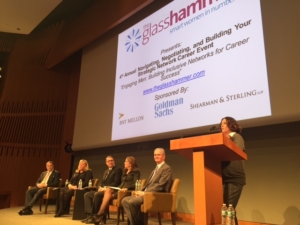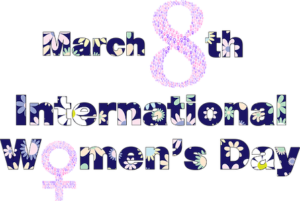 On International Women’s Day (IWD), The Glass Hammer takes the opportunity to set our focused mission to inspire, empower, and inform you in your professional career against the broader backdrop of achieving gender equality on a global basis.
On International Women’s Day (IWD), The Glass Hammer takes the opportunity to set our focused mission to inspire, empower, and inform you in your professional career against the broader backdrop of achieving gender equality on a global basis.
As United Nations (UN) Secretary-General Ban Ki-moon states, “Let us devote solid funding, courageous advocacy and unbending political will to achieving gender equality around the world. There is no greater investment in our common future.”
Women…Just One Day?
Wait. Is having one day designated to over half of the planet’s population itself a barrier to ever achieving gender equality?
We asked Morra Aarons-Mele, blogger, former political consultant, and founder of Woman Online what she thought. “Whenever we focus our attention on a particular issue for a day, we run the risk of thinking and acting for one 24-hour period, patting ourselves on the back, and then putting the issue on the back burner for the rest of the year. The positive change I see is that an increasing number of individuals, governments, businesses, and organizations are considering and working towards gender equality every day. I like to think of IWD as a day where those actors can share their good work and where we can all put focused efforts toward advancing the cause.”
Stepping It Up
This year, with the theme “Planet 50-50 by 2030: Step it Up for Gender Equality”, the UN is focusing on accelerating progress towards sustainable development, which includes 17 Sustainable Development Goals. Many of the goals have heightened significance for women, with “quality education” as goal 4 and “gender equality”as goal 5.
The UN recognizes that sustainable development depends on gender equality. Turned another way, until global society achieves gender equality, including gender equality at key levels of decision making, society will perpetuate an unsustainable world.
On September 27th, 2015, 80 world leaders met in New York to kick-start changes to end discrimination against women, with each country being called to make commitments and pledges focusing on “increasing investment in gender equality, reaching parity for women at all levels of decision-making, eliminating discriminatory legislation, and addressing social norms that perpetuate discrimination and violence against women.”
In the spirit of HeForShe, anyone attending the International Women’s Day Forum in New York, co-hosted by the U.S. Chamber of Commerce Foundation and focusing on the business community, is granted a two-for-one registration when they bring a male colleague. It’s not just a women’s issue.
#PledgeforParity
An acceleration to gender equality is necessary, since the World Economic Forum’s most recent prediction indicates that the global gender gap won’t close until 2133, which was a big slowdown from their 2014 prediction of 2095.
The IWD #PledgeforParity campaign, whose partners include EY and Accenture among others, focuses on prompting individuals, both men and women, to “move from talk to purposeful action”in one of five areas: helping women and girls achieve their ambitions; challenging conscious and unconscious bias; calling for gender-balanced leadership; valuing women’s and men’s contribution equally; creating inclusive, flexible cultures.
Accenture is also holding their annual celebration, with live broadcasts around the world, which will focus on “Being Greater Than: It’s about going beyond boundaries and expectations. It’s about raising our voices and our sights to advance the women, the ideas and the goals that will drive the next generation of leaders.”
Walking the walk, Accenture’s annual event is substantiated by every day action with hiring goals and retention practices in place to create accountable change.
It’s About Every Day.
The biggest thing we can take from IWD is that gender equality is about every single day. It’s not only about the special initiative, or the big event, or the dedicated task force. These things only exist to redirect our attention and energies to the prevalent imbalances that current organizational operations too often stem from and collude with.
According to our CEO and resident organizational psychologist Nicki Gilmour, “Action is what is needed, because I’ve witnessed thattoo often companies stop at lip service.Even when they pay for consultation andsolutions, they often take none of the steps outlined; theypull none of the levers available to them to createequity in the system.Instead many firms throw a party on International Women’s Day and feel that the mission is somehow accomplished whilst talent processes and management practices remain untouched.”
IWD is about what happens every day.
As Aarons-Mele puts it, “IWD gives us all the chance to think about how we address rights and equality all other 364 days each year (or 365 days, this year). How can we move beyond thinking and acting on one day to make equality part of the bones of our organizations? How can we make operational and systemic changes so that we don’t have to take “extra” actions that improve the lives of women. How can we improve our systems to have advancing equality baked right in to our missions? We can all benefit from treating IWD as less a be-all, end-all day for women and more as a jumping off point to use each day of the year to advance women’s rights.”
With that, The Glass Hammer will keep talking about gender equality andacting to create real change today,tomorrow, and each day after that.




